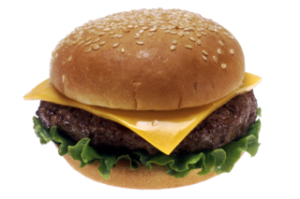 David Conner is an Assistant Professor in UVM’s department of Community Development and Applied Economics.
David Conner is an Assistant Professor in UVM’s department of Community Development and Applied Economics.
An article recently crossed my radar that argues that fast food is a bargain for poor people and that we should do all we can to make food cheap. The author, Kyle Smith, states about the $1 McDonalds double cheeseburger “if it’s not the cheapest, most nutritious and most bountiful food in human history, it has to be pretty close.”
As you might imagine, I have a few things to say in response:
First of all, if calories per dollar is all that matters, then this item, at 390 calories per dollar, does not even come close to the cheapest option. Canola oil and wheat flour deliver 200 calories at a cost of only seven cents, roughly seven times cheaper than Smith’s miracle burger. Even peanut butter is three times cheaper.
Second, taking the argument that “we should do all we can to make things cheaper to help the poor” to absurd ends, then think about what McDonalds pays to haul garbage away. Maybe we should let them just throw it out on the street and pass on the savings to us. All those slaughterhouses that must pay to dispose of offal should likewise just throw it out on the street so we can all save. And so on. (These are just extreme examples of the way McDonalds, and other companies, could potentially minimize their expenses by externalizing costs.)
Third, maximizing calories per dollar is not a wise choice. Maximizing some number or ratio at the expense of everything else—as sadly we do all too much with GDP, for example—and ignoring all the external costs that get in way is just plain bad economics. A steady diet of cheeseburgers does not a healthy body, nor a healthy planet, make.
Finally, externalizing costs to help the poor is like bombing for peace. It is precisely the poor who most bear the consequences of external costs—obesity, environmental pollution, climate change—because they are least able to pay for remediation or escape. Who bears the brunt of obesity? Of pollution (look at Detroit and the piles of Koch Brothers’ petroleum coke—would wealthy people tolerate that)? Who will suffer most from climate change?
Cheap cheeseburgers are not the answer to feeding the poor. They are at best a band-aid on a severed artery. There are lots on innovative efforts to really feed the poor (my friends in Michigan are leaders of note). To continue the metaphor, making healthy foods—grown in socially and ecologically sound ways—accessible and affordable to the poor will suture the artery at worst and maybe prevent the bleeding in the first place.











